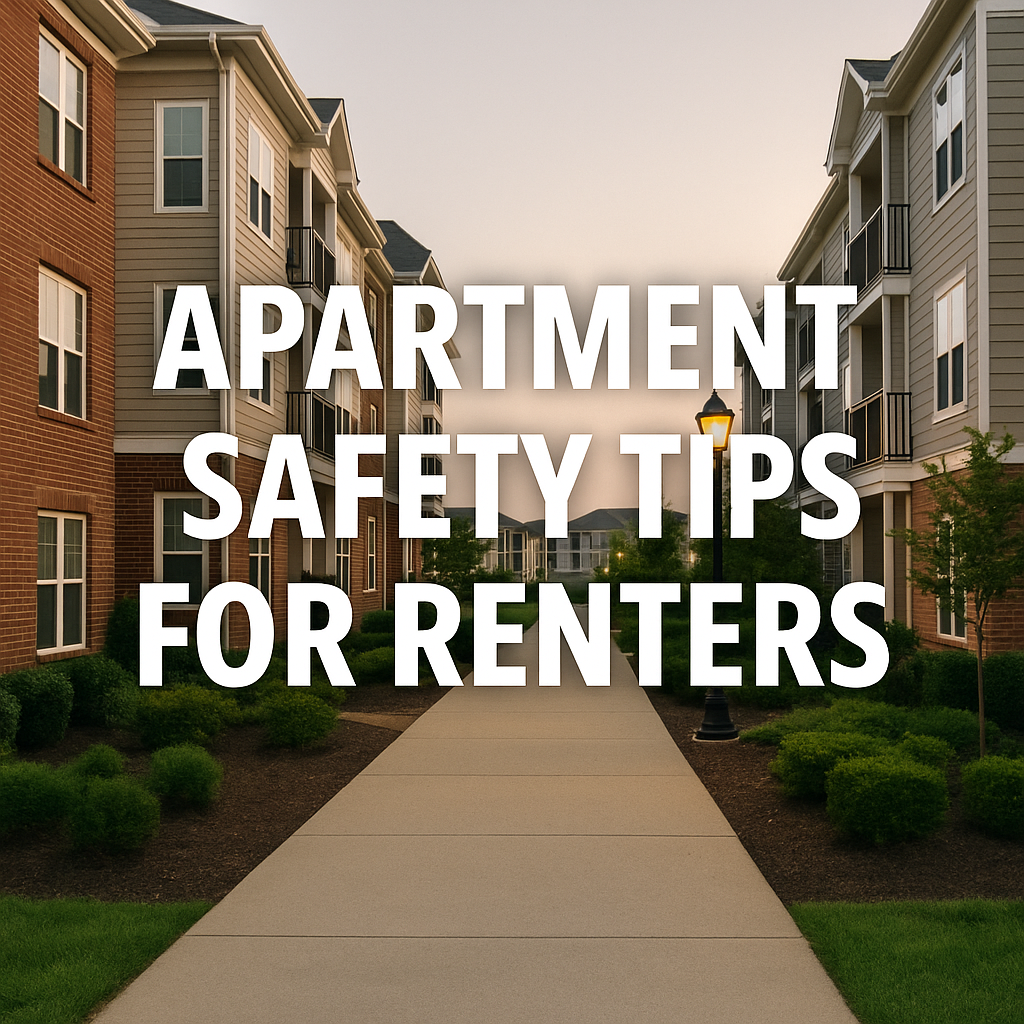Apartment Safety Tips for Renters: What to Look For Before Signing a Lease in Virginia
Picture of Apartment complex in Virginia
What to Expect
In this article, you’ll learn what key safety features to look for when renting in a complex, understand national trends around apartment‑community security and package/entry crime, and discover practical steps you can take as a renter. At the same time, you’ll see why engaging a professional security consultant benefits your management company—and ultimately you as a resident.
Choosing a Safe Apartment Home: What You Should Look For
If you’re searching for a rental in Central Virginia—from Charlottesville and Staunton to Roanoke, Richmond or Lynchburg—it’s not just about location or rent. Safety should be top of mind. Here are features to evaluate:
Secure, controlled access points — Is there a single main entrance, locked vestibule, or key‑fob entry? Complexes with many uncontrolled entry points create vulnerabilities.
Well‑lit common areas, parking and sidewalks — Poor lighting and hidden corners increase risk of theft or assault.
Visible surveillance and signage — Cameras, signs that say “This property is under video surveillance”, and highly visible system help deter crime.
Package delivery security — With more online orders, unsecured porches or lobby areas invite theft. Ask about lockboxes, monitored package rooms, or cameras overseeing drop zones.
Maintenance of grounds and building — Well kept landscaping, trimmed bushes, functioning locks show management takes security seriously. According to one study, apartment communities struggle with theft when landscaping and lighting are neglected. Signal Security+1
Resident communication and incident reporting — Does management have a protocol? Are there posted procedures for after‑hours incidents or emergency contacts?
Fire safety features — Beyond crime, living in a multi‑unit building brings fire risk. Verify functioning smoke/CO detectors, escape routed signage, and well‑maintained wiring and appliances.
Crime Trends: What the Data Tells Renters
Here are some national trends and what it means for rental living:
Apartment communities are commonly targeted for theft and burglary—one recent piece notes that auto break‑ins and thefts are among the top concerns in multifamily housing. ECAM+1
National property crimes continue to be a major issue—according to the latest data, overall property crime declined 8% in 2024. But that general improvement doesn’t mean all neighborhoods or complexes are safe; risk remains uneven. SafeHome.org+1
In Virginia, you can check neighborhood‑level risk via sites like NeighborhoodScout that show “property crime rate” and “violent crime rate” for cities and ZIP codes. For example, for many Virginia locations the rate of property‑crime risk remains above national median. NeighborhoodScout
For renters, what this means is simple: even if crime overall is improving, your safety outcome still depends heavily on the micro‑environment—the building, the management, the security design. Don’t assume “apartment = safe by default.”
What You Can Do Right Now
As someone renting or shopping for a rental, here are practical steps to protect yourself:
Visit at evening hours. Walk the parking lot, entrance, and grounds at dusk. If lighting is weak or unfamiliar people just wander in, that’s a red flag.
Ask for the security features list. Does the building have cameras? How many entry points? What is the visitor sign‑in process? Are there secure package lockers?
Examine your unit’s vulnerability. Ground floor units are more vulnerable—check window locks, sliding glass doors, visibility from public corridors.
Talk to current residents. Ask casually if they feel safe, if they’ve had thefts or break‑ins, or if maintenance responds quickly to lighting/lock issues.
Watch for package theft cues. If you see many boxes piling up uncollected, or lockboxes overflowing, it signals weak management of delivery security.
Fire safety check. Look at smoke alarms, fire extinguishers in common areas, exit signage, and ensure wiring and appliances appear well‑maintained.
Stay alert and proactive. Use your unit’s security features (lock doors, activate alarms, use safety apps); report suspicious behavior to management immediately.
Why Your Property Manager Should Partner With Us
Your safety doesn’t just depend on what you do. It depends heavily on what the property’s management company is doing behind the scenes. That’s where we come in as professional security consultants:
We perform a full security audit of the apartment complex—entry points, lighting, camera coverage, landscaping, access control, package delivery zones, etc.
We provide recommendations and implementation plans tailored to the building size, resident profile, and budget of the complex—helping management reduce incidents, liability, and resident turnover.
We design tenant‑friendly security solutions (not overbearing surveillance) that increase resident satisfaction and sense of safety—benefitting you as a renter.
We work with management companies to monitor, maintain, and review security systems regularly—so the protections don’t fade over time.
We help translate security into resident retention and value—because safer complexes attract and retain tenants, reduce insurance risk, and minimize downtime after incidents.
When your property manager works with us, you benefit too—because your home becomes safer, your rental experience improves, and you get peace of mind.
Ready to ask the right questions and live in safety?
Don’t settle for hope—make sure your next rental truly offers secure living.
Talk to your property manager today about having them reach out to our team of security consultants. We’ll work with them to ensure your apartment complex is designed and maintained for safety—not just convenience. And if you’re already living in a building and feel insecure, let us know. We offer resident support, building auditing, and can help elevate your complex’s safety standards.
Protect your home, protect your peace of mind.

